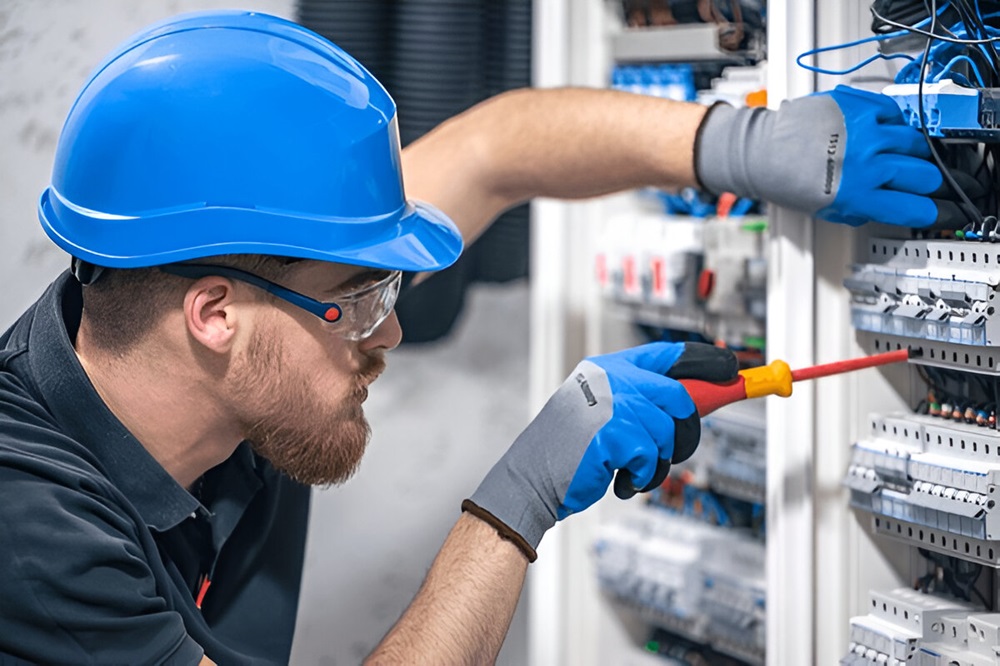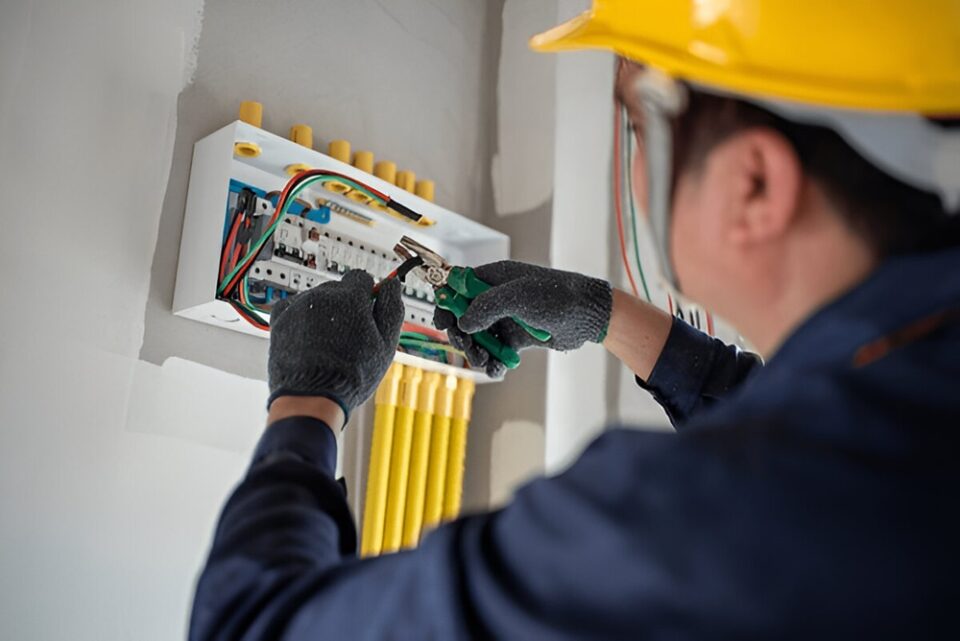Have you ever scrolled through endless listings of electricians, only to wind up more confused than when you began? Do you ever wonder if you’ll get good value for your money or if your chosen electrician has the right training for the job? It’s completely normal to feel a bit uncertain, especially when safety and quality workmanship are at stake.
Think about it: Working with electricity isn’t just about connecting wires. It’s about keeping your home and workplace running smoothly and, more importantly, protecting everyone involved. In this post, we’ll dive into the key steps to help you pick the ideal electrician for your unique needs, whether that’s a simple wiring fix or a complicated commercial installation.
Table of Contents
Why Choosing the Right Electrician Matters
Safety should always come first when dealing with any electrical project. A poorly done job won’t just cause annoyance or inconvenience it can pose serious hazards. Think about the potential for electrical shocks, circuit overloads, or even full-blown electrical fires if the work isn’t done properly. This is why it is vital to choose an electrician who thoroughly understands safety standards and is prepared to follow them.
On top of that, the right electrician can save you money in the long run. When an experienced and qualified professional does the work, you’ll benefit from fewer repairs down the line. Plus, a seasoned electrician can recommend energy-saving measures, like installing motion sensors or upgrading to energy-efficient fittings. If you value lower power bills and a safer environment, it’s worth making sure you pick a true specialist.
Key Considerations Before Hiring an Electrician
Before signing any contract or making a final decision, there are several factors to keep in mind. By covering the essentials, you’ll avoid unexpected mishaps once work gets underway. Below are some core areas you should always review.
Checking Licences and Qualifications
The first thing to confirm is whether the electrician is fully licensed and has completed all required training in Australia. Qualifications can include trade certifications, completion of apprenticeships, and specific endorsements depending on the work they carry out. If the job involves advanced projects, such as complex commercial installations, you might want an electrician with an electrical engineering background or relevant additional credentials.
Understanding Insurance and Guarantees
Insurance provides an added layer of reassurance. Public liability insurance means you’re protected if your electrician accidentally causes damage at your property. When comparing professionals, ask about any guarantees or warranties on the work. For example, some businesses will make sure that any product failures in the first year are replaced at no additional cost.
Evaluating Relevant Experience and Specialisations
Some electricians specialise in industrial or commercial projects, while others focus on domestic wiring and maintenance. If you’re upgrading your home’s lighting or adding new power outlets, a residential expert might be the safest bet. On the other hand, a large factory or corporate building could demand someone with a wealth of industry experience in that specific field.
Assessing Customer Service and Responsiveness
Does the electrician respond promptly to calls and messages? Do they provide friendly service and thorough explanations? An electrician who’s quick to communicate indicates reliability and respect for your time. This factor might be the difference between a smooth project and a drawn-out process that leaves you feeling stressed.
Reading Reviews and Testimonials
Online reviews and testimonials can be your goldmine of information. Look for references to punctuality, quality, and overall customer satisfaction. While it’s normal to see a few negative remarks, consistent complaints should raise a red flag. You can also explore social media pages or local forums to gauge whether previous clients had a positive or frustrating experience.
Comparing Quotes and Pricing
Pricing can vary quite a bit, depending on the electrician’s overheads, location, and the complexity of the project. Obtaining quotes from at least three professionals can help you identify what’s a reasonable price and what might be gouging. Remember: sometimes the cheapest quote could lead to cutting corners, while the most expensive isn’t necessarily top-notch.
Confirming Availability and Location
Finally, find out if the electrician’s schedule aligns with your own. Do they have time to complete your project within your desired window? Also, consider their proximity to your property. If you need urgent assistance—for instance, your power’s out or you have a potential electrical fault—having a local electrician can significantly speed up response times.

Preparing for Your Electrician’s Visit
Ahead of your electrician’s arrival, there are steps you can take to make the job faster and more efficient. A bit of forward planning can also keep you calm during what can sometimes be a disruptive process.
Organising the Site for Efficient Work
First, move any furniture that might be obstructing access to electrical outlets, breaker boxes, or wiring. If the electrician needs to work in multiple rooms, try to clear a path so they can move equipment without hassle. Guidelines for an organised space might also involve turning off certain appliances or shutting down any sensitive devices that could be affected by power interruptions.
Discussing Project Details and Expectations
Take time to chat with your electrician about job specifications. Whether you’re upgrading your circuit board, adding new lighting, or tackling a full rewiring, clarity helps everyone. Confirm the timeline, number of workers involved, and any special requirements. If the project extends over more than a day, scheduling the easiest times for your household or business is something you’ll want to address early on.
Ensuring Safety and Accessibility
It’s crucial to keep children and pets away from the work area, especially if wiring or outlets are temporarily exposed. Provide straightforward access to your fuse box and any other relevant control panels. If your electrician is installing or repairing something outside, remember to remove garden obstacles. Simple preparations like these can lower accident risks and help the electrician complete the job more smoothly.
Documenting Quotes and Agreements
In the hustle of getting a project started, it’s easy to overlook paperwork. Always record any changes to the scope of work, the agreed timeline, and the final pricing. Having a clear outline of tasks in writing offers reassurance for both you and your electrician, and it ensures that if misunderstandings crop up, you have a reference point.
Conclusion
You’ve now explored all the main factors that go into choosing a dependable electrician who suits your needs. By focusing on vital elements like qualifications, insurance, and reliable communication, you’re setting yourself up for a smooth experience. The bottom line is that working with a licensed professional is non-negotiable electrical tasks can be risky if handled by someone unqualified.
It’s worth reaching out to friends, family, or online local groups to get recommendations you can trust. Pair that real-world insight with a few well-chosen quotes from local electricians, and you’ll soon spot a standout candidate.
Whether you intend to upgrade your home’s energy efficiency or plan for commercial growth, building a solid relationship with a skilled electrician can save you time, money, and stress later on. Here’s wishing you every success in making a choice you’ll feel good about both now and for years down the road.

